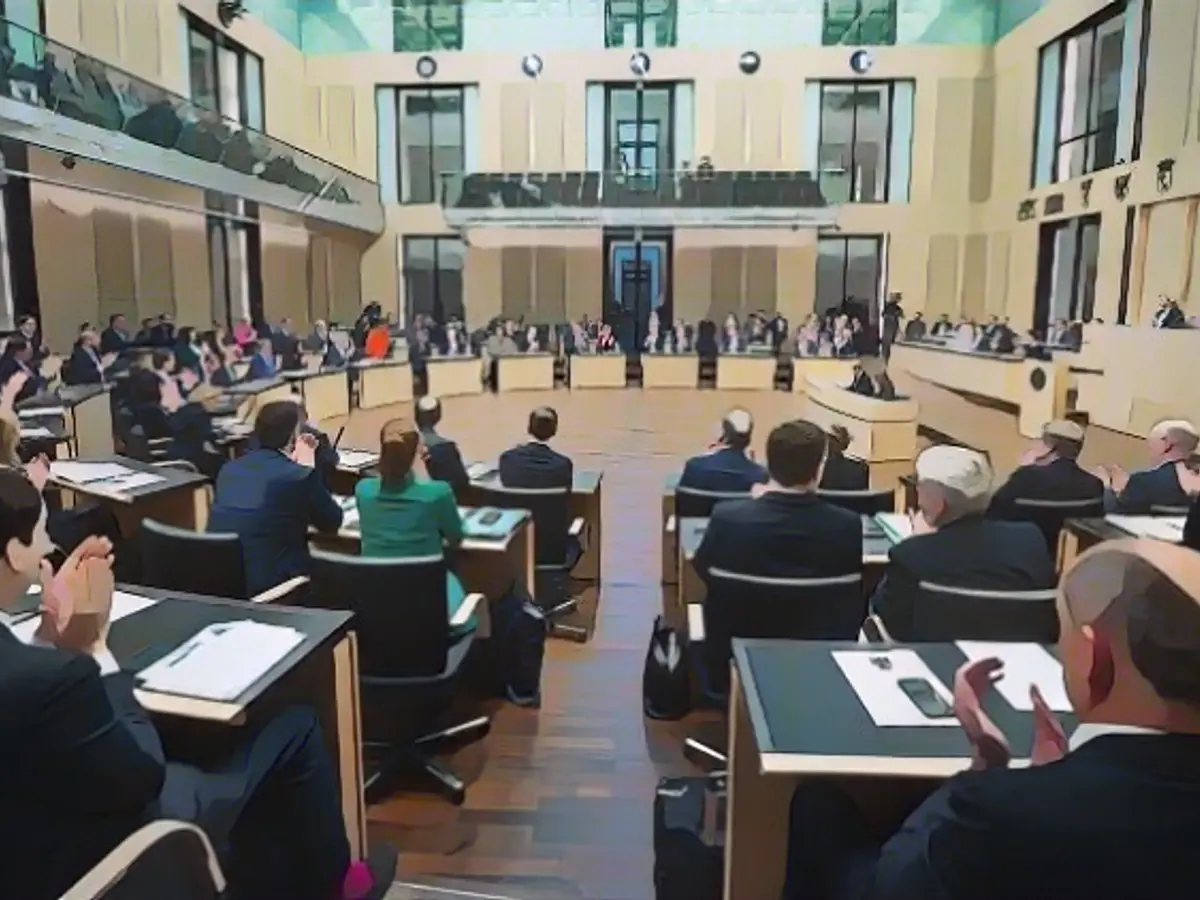Hospitals on the Brink: An Urgent Call for Financial Aid
Faced with escalating expenses and stagnant revenues, the states of Schleswig-Holstein and North Rhine-Westphalia are imploring the German government for immediate intervention. "Hospital expenditures often outpace income, threatening the very existence of medical facilities," said Schleswig-Holstein's Health Minister Kerstin von der Decken (CDU) in Kiel. "Several hospitals, including three in Schleswig-Holstein, have already gone bankrupt, and others are teetering on the edge."
The duo has proposed several measures to safeguard hospitals' economic stability in the short term. This includes a one-time emergency financial aid package worth €5 billion from the federal government, an increase of 4% in the state prime rate, and financing tariff increases outside of the healthcare budget. Additionally, they advocate for revising the methodology for hospital remuneration.
The urgency of the situation calls for swift action. "Hospitals need immediate support to avert further bankruptcies and eventually, the untimely demise of even critical medical facilities," asserted von der Decken. The allusion to an impending hospital reform due in the latter half of the decade fails to meet the present crisis's demands.
To provide hospitals with long-term financial stability, the Federal Council should consider implementing permanent funding solutions to cover inflation- and tariff-related cost increases. These measures could include:
- Revising the current risk-adjusted capitation formula for Health Insurance Fund (SHI) premiums, accounting for inflation and tariff adjustments, ensuring hospitals receive appropriate funding.
- Employing digitalization, such as the introduction of Electronic Patient Records (ePA) and electronic prescriptions, to streamline healthcare services, reduce administrative costs, and enhance resource allocation.
- Optimizing the ongoing hospital reform to incorporate mechanisms adjusting fees based on inflation and tariffs, alleviating financial pressure on hospitals.
- Reviewing pharmaceutical reimbursement prices under the AMNOG process to account for inflation and tariff increases, potentially through periodic adjustments or dynamic pricing models.
- Encouraging private finance initiatives, leading to partnerships between private investors and public healthcare systems, providing hospitals with secure and prolonged funding sources.
- Investing in medical research, such as simplifying and hastening clinical trials, to attract more investment, resulting in potential cost savings and innovative treatments.
- Exploring Public-Private Partnerships (PPPs) for hospital infrastructure and services, leveraging the expertise and funding of the private sector to ensure financial sustainability.
- Promoting hospital specialization in areas of expertise, improving profitability, and enhancing the overall quality of care, making hospitals more resilient financially.
Each of these strategies requires coordination between public and private sectors, aiming for sustainable, equitable, and socially conscious financing solutions in line with Germany's healthcare system principles.








